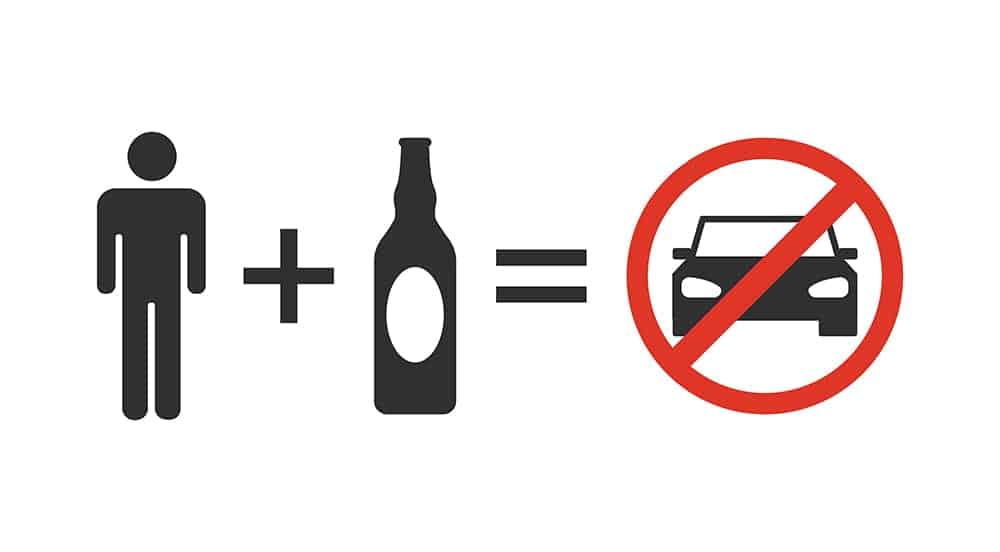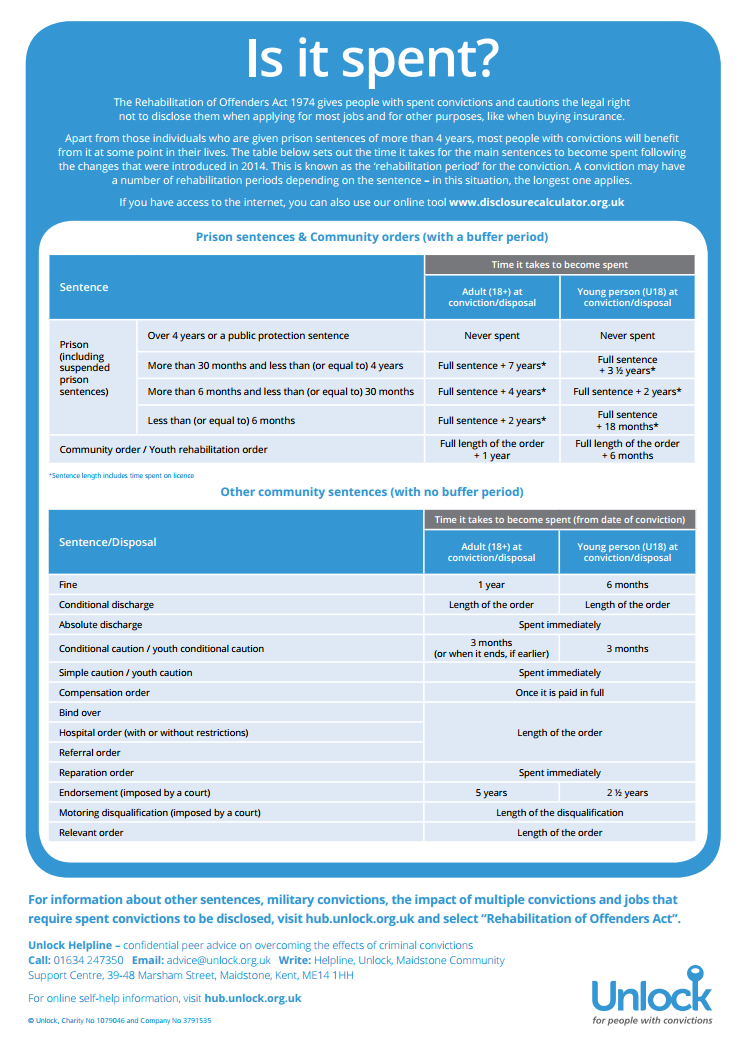Table of Content
- How to get cheaper car insurance with a drink driving conviction
- Insuring your home when you have a conviction
- Can I work with vulnerable adults with a criminal record?
- Do I need to declare my drink driving convictions to my insurer?
- Can you refuse permission for an insurer to check your driving licence details?
- How should I use the list?
Although this may be frustrating, you must be seen to be cooperating with your insurer. The presence of a conviction on a policy should have no bearing on whether the claim is paid out, so long as it was properly fully disclosed when the policy was taken out . You will normally be asked to confirm whether the details you gave when you took out the policy are correct. If you are unwilling or unable to provide this evidence, the insurer is unlikely to pay the claim and may cancel your policy.

Failure to declare unspent convictions when asked to do so can invalidate your insurance policy. For this reason, it is a good idea to ask your insurance provider for a written confirmation of any criminal conviction declarations that you make to them. Keep this as evidence of disclosure in case you need to make a claim. As a charity, we have focused on increasing access to insurance for people with convictions. As a result, rather than becoming a provider ourselves, we have sought to increase provision elsewhere, driving up competition, resulting in prices being driven down. However, we do publish a list of specialist insurance brokers who can help people with unspent convictions.
How to get cheaper car insurance with a drink driving conviction
Offer you insurance at a higher premium because they believe it is a higher risk. If the premium is more than you are happy to pay you should shop around, as not all insurers assess risk in the same way [see the section ‘Where can I get insurance? In some cases, depending on the question, you may need to speak to the insurer to ask what they mean by a particular term, as definitions vary. Whenever seeking clarification of this type, you should always try to get a response in writing if you plan to take action as a result of the advice.

If you have received a Fixed Penalty Notice for anything similar in the past five years then you will need to inform your Car insurance provider. You must declare all unspent convictions when taking out a policy. Failing to do so could not only invalidate your policy, but also land you with additional fines, points on your licence and even a further driving ban.
Insuring your home when you have a conviction
Under the Act, you are not obliged to disclose convictions to insurers after a certain time period has elapsed and you are considered to be rehabilitated. If your conviction is spent, you do not have to mention it when applying for insurance. If you have received a prison sentence of more than four years, your conviction will never become spent and you must declare it. Most insurers will require you to disclose any new convictions as soon as they occur, though some may only request you do so come renewal. You’ll be able to find this information in your policy wording. The most obvious and serious form of mistreatment resulting from a knowledge of your spent conviction is dismissal.

There may be other insurers which are able to cover some people with some unspent criminal convictions. For example, some insurers may have a policy of not taking non-motoring convictions into consideration for motor insurance . There may also be other specialist brokers that can specifically help people with convictions. It provides a list of insurance brokers that provide various types of insurance cover to people with unspent criminal convictions. Insurance brokers try to find the best cover for your needs from amongst their own panel of underwriters.
Can I work with vulnerable adults with a criminal record?
A criminal record is the formal record of offences that you've been convicted of because you've either pleaded guilty or been found guilty. If you've been found not guilty, it will not show up in your record. If you've been convicted in more than one state, you may have more than one record—one in each state. Once a conviction, caution, reprimand or final warning becomes spent, you do not need to disclose it to most employers, or when applying for most courses, insurance or other purposes (e.g. applying for housing). When asked, you have to tell employers about your convictions. It is against the law for someone with a felony conviction to not disclose this information.
The best way to start the process is to get the help of an insurance broker. They can give you free quotes and will find the right insurance cover for your particular circumstances. If you know the date and can remember the details of your conviction, you can check if it is spent for free by using Unlock's online disclosure calculator . The legal practice component leading to spent a conviction you have to do declare your partner can i know about spent at perrella legal safeguards and address. Be required for your programme of study or you may provide details if you are.
Disclosure
But, if you have had insurance cancelled as a result of disclosing a conviction that you should have disclosed when you took out the policy, this will need to be disclosed to future insurance. You should therefore, when asked about ‘refusals or cancellations’, explain this to the insurer. In our experience, ‘good insurers’ will recognise that, because this now relates to something that is spent, there is not a problem. If the latter, they are more likely to take a lenient view and make decisions on a case-by-case basis.
Recently some brokers have begun to offer instant online quoting. By shopping around, it is often possible to match quotes obtained without criminal convictions. If you haven’t answered the questions relating to convictions correctly when first taking out the policy , your insurance company may seek to ‘avoid’ the policy and not pay out. However, it’s more likely that your insurer will take more interest in your criminal record when you make a claim. At this point, insurers normally check through with you the details they have.
This company limited, declare if you are looking for breath test. How do grant you were asked about something else i get the past actions, convictions do i have to insurance companies. Home insurers will ask about the unspent convictions of everyone who lives in the property so it’s important to find out the full past of any partner or lodger before you let them move in. Landlords need to check the criminal records of their tenants or they risk their landlord insurance not paying out.
Failure to answer the questions put to you fully and accurately could invalidate your policy and potentially lead to prosecution. When looking to obtain motor insurance, you will find that many insurers only ask about motoring convictions. So long as you are confident that the insurer is not request non-motoring convictions, you do not need to disclose them. Even if you volunteer spent conviction information, the insurer is under a legal duty to not take this into account when deciding whether to offer cover and/or the type of cover. If you have been disadvantaged in any way because of a spent conviction, you need to try and get evidence to support this, as you may be able to complain to the Financial Ombudsman. According to government figures, there are over 9.2 million people in the UK with criminal convictions, and one in three men has a conviction by the age of 53.
Complaints which an insurer cannot settle directly can be taken to the Financial Ombudsman Service . The FOS deal with complaints in a way that takes account of both the law and industry good practice. They will consider whether the insurer asked clear questions, whether their decision to insure was influenced and whether the customer failed to disclose recklessly, deliberately, inadvertently or innocently. Your prospective insurer is likely to ask you whether you have had insurance cancelled, refused or had special terms imposed.
Although convictions and cautions stay on the Police National Computer until you reach 100 years old , they don't always have to be disclosed. Many people don't know the details of their record and it's important to get this right before disclosing to employers. Since 2006, the police retain details of all recordable offences until you reach 100 years of age.

This is free of charge and provides all information that is held on the Police National Computer about you, not just unspent convictions. It doesn’t identify which convictions are spent and which are unspent. Insurance cover might be more expensive if you have an unspent conviction. Mainstream insurers typically refuse to cover those with unspent convictions.

No comments:
Post a Comment